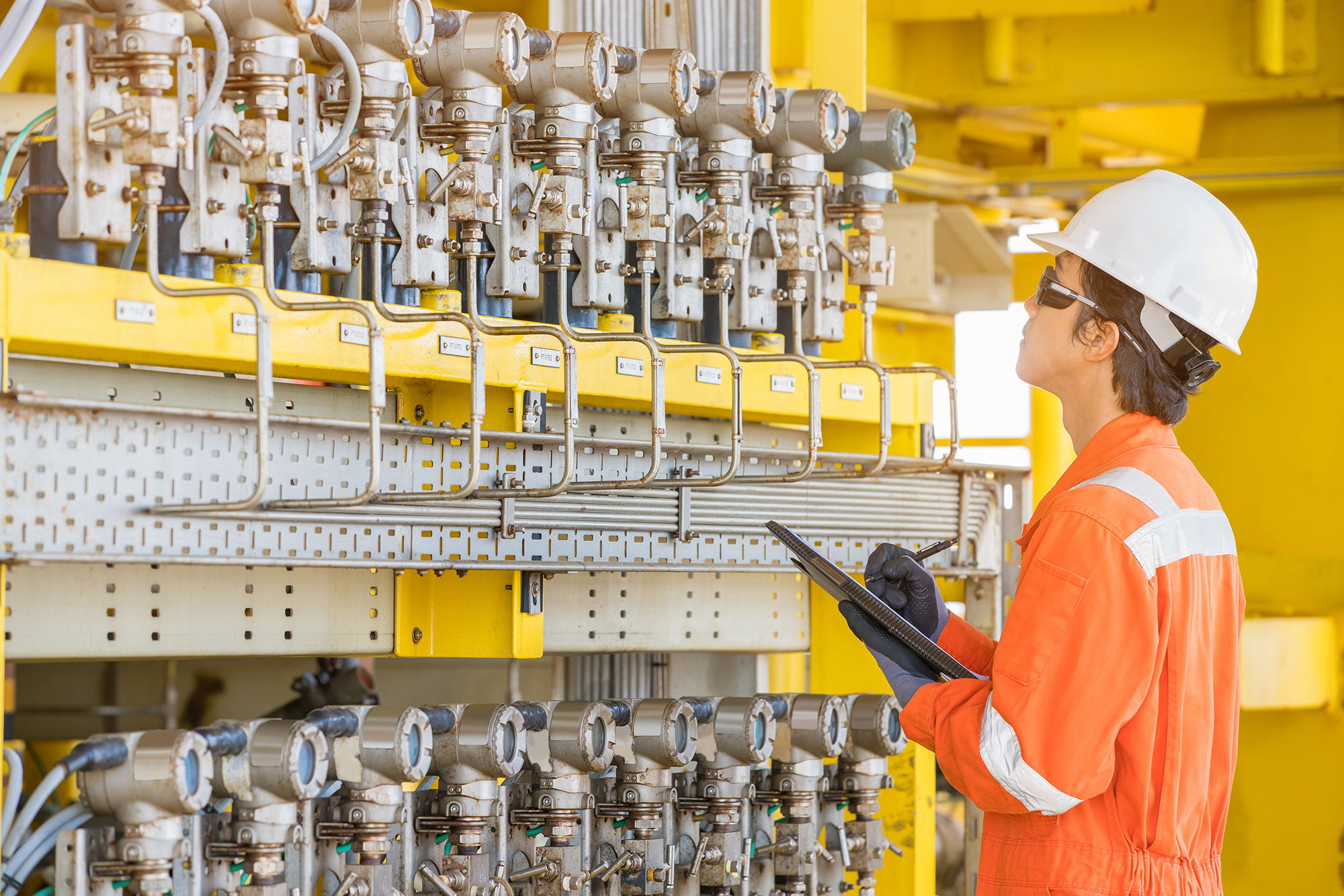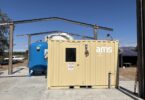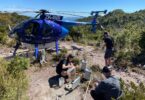Engineers in the water industry deal with real pressure all the time: both literally, when managing pressure, and figuratively, because they bare the weight of ensuring a safe supply. Because engineers play a critical role in making water management as safe and efficient as possible, it is important that they are equipped with the latest industry relevant skills and practical knowledge. The Engineering Equipment and Materials Users Association (EEMUA) has developed a set of training and competency courses that empower practitioners to apply safe and effective engineering best practice in their respective industries. EEMUA’s Mechanical Integrity Practitioner Certificate is one such course, designed to help experienced engineers stay on-site and on top of the latest industry developments and good practice in primary containment of hazardous substances. This course is particularly relevant to the water industry, where containing hazardous substances and properly managing pressure is a crucial part of the job.
Challenges in the water industry
Water industry engineers are responsible for the safe and efficient provision and treatment of the water on which we all depend. This important task is made increasingly difficult because water networks are complex systems which can pose a number of human and environmental risks.
Not managing these systems properly can have a number of adverse consequences. For starters, outdated and poorly managed water infrastructure is responsible for billions of litres of water loss each year in the United Kingdom. Another area of concern is contamination from hazardous substances such as raw sewage, heavy metals, oils, and petrochemicals. Spillages and leakages of these substances pose a threat to water quality.
In addition, potentially explosive atmospheres are found in waste treatment facilities and sewers. Much of the explosion risk is in the intake (including storage) areas of wastewater treatment plants, wastewater pumping stations wet wells and gravity fed sewers.
There are also challenges with alarms systems management. In a control room, operators may need to handle diverse alarms from multiple different assets, a number of which may appear similar to the untrained eye. For example, asset types range across water treatment plants, water distribution networks, sewage treatment plants, and pump stations. However, some operators may have little or no local process/site knowledge to adequately handle these systems.
The role of engineers
From source to tap, water passes through a complex array of infrastructure and equipment. Water networks are often high-pressure, which brings water to where it needs to go, but increases the risk of leakages and other mechanical failures. Equally, hazardous substances are also subject to high pressures, increasing the risk of leakage.
Ensuring the mechanical integrity of both water and hazardous substance equipment is vital to mitigate these risks. Mechanical integrity refers to the management of critical process equipment to ensure it is designed and installed correctly and that it is operated and maintained properly: this is the engineer’s job.
Whether you are a corrosion engineer, operational safety engineer or plant inspector, a vital part of your job is ensuring the mechanical integrity of machinery, equipment, and infrastructure to mitigate risk. Prevention is better than cure, and nowhere is this more applicable than when dealing with hazardous substances: ensuring that these substances are stored and worked with safely and securely is critical.
Primary containment of hazardous substances
A primary containment is a device or container that often comes in direct contact with a hazardous material. This equipment is designed to contain harmful chemicals and materials and reduce the risk of environmental and human contamination.
Loss of Primary Containment (LOPC) is an unplanned or uncontrolled release of material from these devices or containers. LOPC from spills and leaching can always occur when dealing with chemicals and harmful materials, but primary containment equipment is designed as a first line of defence to minimise this risk.
There are many ways to mitigate against leakages, such as choosing the correct container lining material, regular maintenance of equipment, and training employees to keep them up to date with industry best practice.
That last point is one that many overlook in their risk mitigation strategies. Especially because working with primary containment equipment can be dangerous, it is doubly important that personnel are equipped with the latest knowledge and skills to manage risk to the best of their ability.
EEMUA Training for the Water Industry
EEMUA is a non-profit membership organisation that exists to serve its member companies, which are the users of engineering equipment and materials. It is an internationally recognised source of expertise and information for the engineering industry that helps improve the safety, environmental and operating performance of industrial facilities in cost-effective ways. As part of its portfolio, EEMUA offers training and competency courses that play a key industry role in developing and testing the knowledge, understanding and competency of workers.
Many of the EEMUA courses cater to water industry professionals at every experience level. The portfolio ranges from e-learning courses set at the awareness level and lasting for about an hour, to 2 half-days live online, and even in-depth training at the practitioner-level of about 4-hours per week for six months – all with the flexibility to learn on-site or on-call. Therefore, those in the industry dealing with anything from mechanical integrity to alarm and pressure systems (that are central to water network maintenance) can call upon learning and guidance resources to suit their needs and the time they have available.
All these courses integrate so that the water engineer is equipped with a diverse set of skills to improve the operational safety and performance of their facility. Each course stems from EEMUA industry good practice publications – for instance, EEMUA 191 for Alarm Systems, EEMUA 231 for Mechanical Integrity, and EEMUA 186 for practitioners working in potentially explosive atmospheres. More than one guide is entirely relevant in each area because, for instance, an engineer working in a hazardous area will also follow good practice in mechanical integrity.
For Experienced professionals
EEMUA’s Mechanical Integrity Practitioner Certificate (MIPC®) is a blended learning training course that helps engineers to stay on-site and on top of the latest industry developments and good practice in primary containment of hazardous substances.
Through short, focused, and manageable online training tasks over 27 weeks aimed at mechanical integrity practitioners, this course offers an enhanced, up-to-date view of mechanical integrity challenges, trends and opportunities. Adapted to each learner’s industry sector and site(s), it empowers practitioners to combat the causes of loss of primary containment of hazardous substances. By addressing the individual, site and industry specific needs of each engineer, the course equips the learner with specific and practical knowledge directly applicable to their unique context.
Fully certified, the course uses a blend of live, online classes, one-to-one sessions with expert tutors, and e-learning, enhanced by a mentor’s support and guidance, to give professionals the flexibility to learn on-site or on-call. The industry’s busy professionals can keep their knowledge up-to-date and certificated, and still be where their work needs them.
EEMUA good practice guidance, and the publications and training courses that follow, are developed ‘by industry, for industry’ with industry experts contributing the experience and know how that EEMUA gathers and shares to help engineers in their work. This keeps EEMUA’s good practice guidance and training courses up-to-date and directly relevant; and means that the EEMUA’s guidance is practical for engineers actually doing or preparing to do the work.
So, for engineers working to solve the challenges of the water and waste-water industry, EEMUA offers tools and guidance for immediate practical use and structured learning with certification for long-term professional development. EEMUA also holds live online webinars, seminars, and other events on specialist industrial engineering topics throughout the year, many of them free to attend. This gives industry professionals the opportunity to stay abreast of practical methods and techniques developing in their industry.
For more information on the Mechanical Integrity Practitioner Certificate (MIPC®), please click here, find training and events on EEMUA’s Calendar, or discuss how to make its resources work for you and your colleagues by contacting membership@eemua.org
Do you have an article to share? Click here to submit or if you’d like to subscribe to our weekly newsletter, click here.







